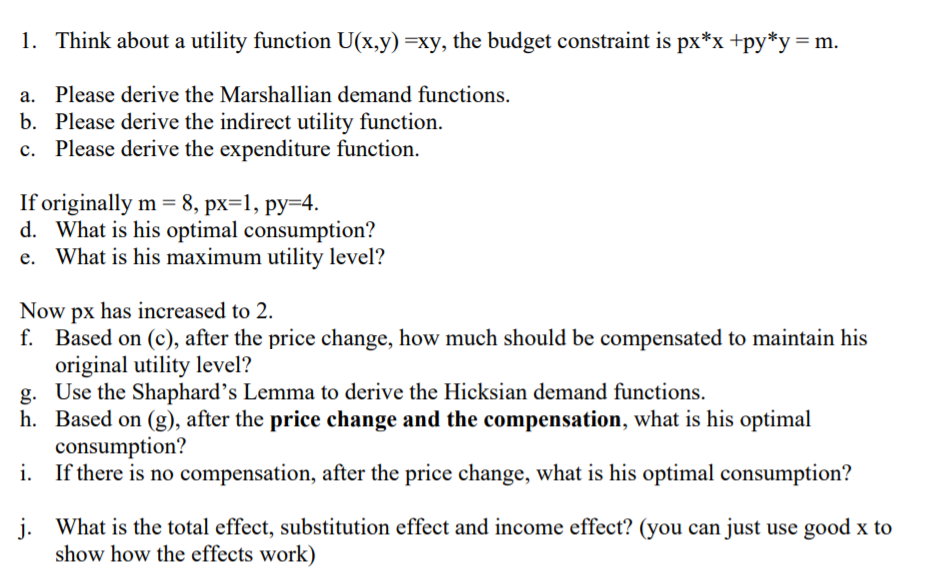1. Think about a utility function U(x,y) =xy, the budget constraint is px*x +py*y = m. a. Please derive the Marshallian demand functions. b. Please derive the indirect utility function. c. Please derive the expenditure function.
1. Think about a utility function U(x,y) =xy, the budget constraint is px*x +py*y = m. a. Please derive the Marshallian demand functions. b. Please derive the indirect utility function. c. Please derive the expenditure function.
Linear Algebra: A Modern Introduction
4th Edition
ISBN:9781285463247
Author:David Poole
Publisher:David Poole
Chapter2: Systems Of Linear Equations
Section2.4: Applications
Problem 23EQ:
23. Consider a simple economy with just two industries: farming and manufacturing. Farming consumes...
Related questions
Question

Transcribed Image Text:1. Think about a utility function U(x,y) =xy, the budget constraint is px*x +py*y= m.
a. Please derive the Marshallian demand functions.
b. Please derive the indirect utility function.
c. Please derive the expenditure function.
If originally m = 8, px=1, py=4.
d. What is his optimal consumption?
e. What is his maximum utility level?
Now px has increased to 2.
f. Based on (c), after the price change, how much should be compensated to maintain his
original utility level?
g. Use the Shaphard's Lemma to derive the Hicksian demand functions.
h. Based on (g), after the price change and the compensation, what is his optimal
consumption?
i. If there is no compensation, after the price change, what is his optimal consumption?
j. What is the total effect, substitution effect and income effect? (you can just use good x to
show how the effects work)
Expert Solution
This question has been solved!
Explore an expertly crafted, step-by-step solution for a thorough understanding of key concepts.
Step by step
Solved in 4 steps with 4 images

Recommended textbooks for you

Linear Algebra: A Modern Introduction
Algebra
ISBN:
9781285463247
Author:
David Poole
Publisher:
Cengage Learning

Linear Algebra: A Modern Introduction
Algebra
ISBN:
9781285463247
Author:
David Poole
Publisher:
Cengage Learning